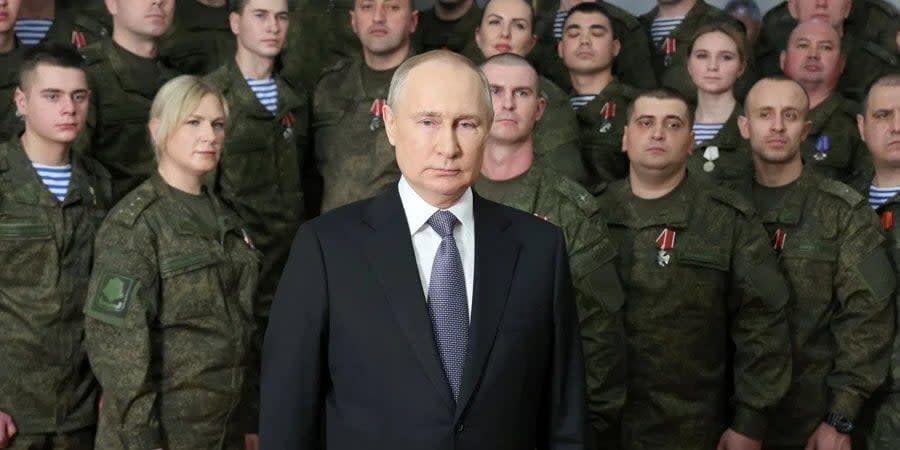Fog of war and peace in the fog

The text was published in the New Voice’s special edition issue, The World Ahead 2023, via exclusive license from The Economist. Republication is forbidden.
The recent history of Russian-Ukrainian relations can be considered without exaggeration as a 30-year permanent conflict, which reached the most acute phase of armed confrontation in 2022.
The de-occupation of Crimea will be the most serious test and the moment of truth
Despite the firm belief in the inevitability of Ukrainian victory, the path to it and its outlines are still shrouded in the "fog of war." An excessive degree of uncertainty or the "fog of war" (according to Carl von Clausewitz) is an inherent attribute of the theater of war. It is not only about the battlefield, but also about the strategic vision of the contours of postwar peace. It is difficult to foresee the war’s next turn behind the "fog of war", and it is even more difficult to see a longer perspective. In addition to the organic "fog", Russia will increasingly generate a "smoke screen" of a mixture of blackmail and attractive offers to throw our partners off course.
The task of ending war and finishing it are not the same. The result of a premature termination of war is usually only an armistice. Confidence in the possibility of establishing peace, by stopping war at the earliest moment, is as counterproductive and dangerous as the peacemaking rituals around the flywheel of a war machine which is already in motion. A war that takes on a life of its own after the first shot is fired cannot always be stopped, even by the one who started it. There are reasons to doubt Putin's real ability to control the processes he has started. Therefore, one should not count on compromises with Putin until the objective circumstances mature, leaving no other choices for Russia.
Read also: Number of deaths in tragic Dnipro city strike rises to 35, including two children
The well-known American expert, Edward Luttwak, once explained in detail why reservations about peace initiatives should not be taken as a "hawkish" position, especially when it comes to a war in its climactic phase. His seminal article Give War a Chance, published at the end of the last century (Foreign Affairs, July / August 1999), drew a lot of criticism. The two decades since the article was published have only added the arguments in support of his thesis about the paradoxical logic of war, and its exclusive mission to create a lasting peace.
In Luttwak's opinion, "war can lead to a resolution of the political conflict and peace only after the exhaustion of the parties or after the convincing defeat of one of them." It is clear that the option of exhaustion of the parties, to put it mildly, is not the best prospect of ending the war for Ukraine. But even a convincing military defeat of Russia (restoration of the territorial integrity of Ukraine) is unlikely to solve the basic political conflict.
Read also: A very clear signal to Putin: What is the West doing?
It is possible that the list of Russian claims against Ukraine will become even more voluminous as a result of the lost war. It is doubtful that the Russians will be willing to voluntarily change the slogan "we can do it again" to "never again", and the prescription of external (occupational) treatment for such a similar disease of the Germans and Japanese after the Second World War cannot be applied to the Russians for obvious reasons.
Dangerous twist
In any case, the primary task is to finish the war on the most favorable terms for Ukraine. Ideally, the territory of Ukraine should be completely freed from Russian invaders. Unfortunately, the world is not perfect. It is possible that, under unfavorable circumstances, Ukraine will have to agree to certain painful compromises.
No matter how paradoxical it may sound, one of the dangerous turns could be the Kremlin's agreement to fulfill certain conditions of Kyiv, for example, one of the 10 steps put forward by President Volodymyr Zelenskyy at the G20 summit. Probably, such "gestures of goodwill" will find a response in the Western camp of supporters of immediate negotiations.
Read also: Joint aviation exercises with Russia to kick off in Belarus
Another paradox may be the reaction of individual partners in the event that the prospects of Russia's strategic military defeat become too obvious.
A separate issue is the de-occupation of Crimea, where, according to Zelenskyy, the war must end. This stage will be the culmination of the confrontation, the most serious test and the moment of truth. A long and painful process of digestion and rethinking awaits Russia, which will "swallow" Crimea, at the end of which — though not guaranteed — a mutually acceptable solution to the Russian-Ukrainian political conflict may finally appear.
Looking ahead, the possible signing of a peace treaty in the Ukrainian city of Yalta will not only change the image of Crimea as an apple of discord, but will also become a logical embodiment of Russian dreams about Yalta-2.
But when trying to find an answer to the most pressing question for all of us, "When will the war end and peace come?", we are not able to give any guidelines. Although, if we compare the situation in February with December 2022, there are quite good reasons to hope for this in 2023. But the struggle is still going on, and the logical connection between the end of the war and the arrival of a lasting peace depends to a large extent on its results. Therefore, the answer should be sought not so much in the temporal dimension as in understanding the conditions under which the transition from war to a stable and lasting peace will become possible.
Read the original article on The New Voice of Ukraine

